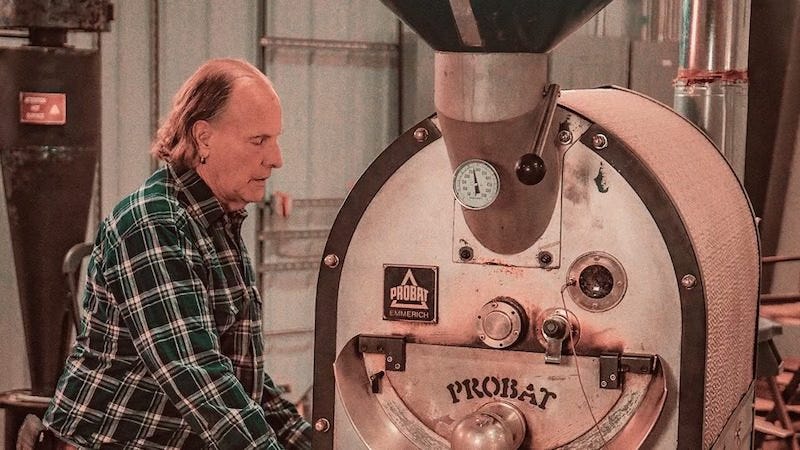Listening as an Ascetical Practice
Through the story of a blind coffee roaster and the wisdom of the Desert Monastics, a reflection on how it may not be what we say, but how we listen, that matters most.
A few weeks ago at the monastery, I received a call from my friend Gerry. Born blind, Gerry never allowed his blindness to be an obstacle to pursuing his dreams. He fell deeply in love with roasting coffee—a passion he mastered not through sight, but through his heart.
Unlike most coffee roasters who rely heavily on technology and precise visual charts, Gerry listens. He attunes himself to the subtle cracking of the beans as they roast, hearing the perfect moment to adjust the temperatures.
The result? It’s simply the best cup of coffee I’ve had.
Maybe it’s what love tastes like.
Reflecting on Gerry’s story, I found a deep resonance with the wisdom we’ve been studying in our monastic history classes—the teachings of the Desert Elders of Egypt. One particular saying struck me deeply:
A brother questioned Abba Hierax, saying, “Give me a word. How can I be saved?”
The old man said to him, “Sit in your cell, and if you are hungry, eat; if you are thirsty, drink; only do not speak evil of anyone, and you will be saved.”
(Hierax 1)
Br. Josep challenged us to consider how often we embrace external ascetical practices without engaging in the internal, transformative work they are meant to cultivate.
I could spend hours in solitude, praying fervently and fasting rigorously—yet if I then descend into the dining hall and insist on being the center of every conversation, have I truly entered the journey that monasticism invites me into?
What if choosing to truly listen to others could begin to transform not only the world around us—but also the world within us?
I’ve read plenty of books about detachment—spiritual classics that describe the beauty of letting go of ego, expectations, and control. But I’ve discovered that one of the hardest places to actually practice detachment is in conversation.
It’s in the quiet moments when I realize I’ve begun subtly redirecting the exchange back to myself, seeking affirmation or recognition.
It’s in the discomfort of resisting the urge to correct someone, or to insert a story of my own. It’s in choosing, instead, to simply stay with what they are saying—to be present to their experience without trying to shape it.
That’s the heat I have to stand in. The heat that reveals my attachments—not to material things, but to identity, to control, to being the one who’s needed or admired.
But this, I’m realizing, is where real transformation happens—not by external displays of piety, but by the quiet, interior work of love.
As Thomas Merton writes:
“I cannot discover God in myself and myself in Him unless I have the courage to face myself exactly as I am, with all my limitations, and to accept others as they are, with all their limitations.”
Listening, when practiced as a form of surrender, can feel like being placed in the fire—like the coffee bean, cracking open under heat. It exposes our ego, our need to be heard, our subtle habits of control. But it’s in that heat that something new is formed.
If we allow ourselves to stay in that fire—to do the inner and sometimes painful work of letting go, and to face the parts of ourselves we don’t want to see—we can become a presence that helps heal the wounds of others.
Not by what we say,
but by how we listen.





Thank you.
It's a new idea for me: to practice detachment in conversation. I'll try. I'll practice. Thank you for this.